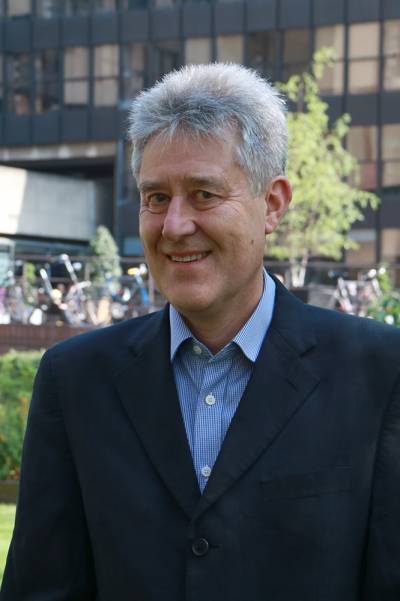Hugh Starkey is Professor of Citizenship and Human Rights Education at IOE's Department of Curriculum, Pedagogy and Assessment.
What attracted you to take up your position at IOE, UCL's Faculty of Education and Society?
I was appointed to devise and develop an online MA in Citizenship and History Education (University of London International Programmes). This appealed, as I was running a PGCE Citizenship course at the University of Leicester and I had also worked on course development at the Open University
How has being in London or at UCL in particular benefited you?
The great thing about IOE being in London is that everyone who is anyone in education passes through the city at one time or another and there are opportunities to meet and work with great international experts. IOE also has some great partnerships, and I have personally benefitted from our links with Madison, Melbourne, OISE Toronto, and Beijing particularly.
How long have you been at IOE and what was your previous role?
I came in 2004 and my role has evolved from being primarily focused on online education to building up an international group of doctoral students, all of them working in some way on citizenship and human rights education.
What do you most enjoy about your position and why?
I enjoy working with outstanding academic colleagues and doctoral students. There is a strong international dimension to my work and I very much appreciate building and developing institutional links. I was involved with the planning and leadership of six biennial conferences with Beijing Normal University, for instance. I think networking is hugely important in academic life and so I like attending conferences, particularly the huge AERA conference in the USA.
What working achievement or initiative are you most proud of?
Soon after arriving, I co-founded the International Centre for Education and Democratic Citizenship (ICEDC) with a colleague from Birkbeck, University of London. From 2006 to 2019, we organised an annual conference that featured keynotes from leading scholars and provided a platform for researchers from across the world. Unfortunately, the sequence was interrupted by Covid, but we have now developed an international research network supported by the World Education Research Association, and we have organised an online webinar series.
What is the focus of your research and what benefits do you hope your discoveries or insights will bring?
My research basically addresses the question of how we learn to live together.
“Democracy is a concept based on the assumption that all are entitled to participate on the basis that they have equal rights and equal dignity.
Human rights are the international standards that underpin this. Democracy implies that everyone is different and that we hold different opinions and views of the world.
How do we then learn to live together? This is a crucial question for schools as well as for the wider society. The answers require understandings of politics, law, economics, history and sociology, for example, as well as pedagogy. It requires insights from many academic disciplines and this provides considerable intellectual and practical challenge.
Last updated 28 July 2023.
 Close
Close


